1. Projects
1.1. 1 begin Sense Making
1.1.1. Deconstruct the Content
1.1.1.1. Difficult
1.1.1.2. Intention (Productive Struggle)
1.1.1.3. Experience / Discovery
1.1.1.4. Agency / Being
1.1.2. Find Patterns and Apply Frameworks/Abstractions
1.1.2.1. Computational Thinking
1.1.2.2. Banking v. Constructivism
1.1.2.2.1. sage on the sage v. guide on the side
1.1.2.2.2. Right answers v. discovery
1.1.2.2.3. Purity v Neighborliness
1.1.2.3. Knowing, (Un)Learning, Teaching
1.1.3. Apply an Algorithm - Make a Class / Object
1.1.3.1. Miro Board???
1.1.4. Output
1.1.4.1. Why Collaboration
1.1.4.1.1. Tools
1.1.4.1.2. Learning
1.1.4.1.3. Purpose
1.1.4.1.4. Process
1.1.4.1.5. Risk / Reward
1.1.4.1.6. Intrinsic / Extrinsic
1.1.4.1.7. Informative failure and the necessity of being wrong
1.1.4.2. Abstraction
1.1.4.2.1. What is it an how does it apply to this
1.1.4.2.2. A nerdy take
1.2. 2 Computational Thinking / What are numbers?
1.2.1. Build a Miro Board Version
1.2.2. Numbers
1.2.2.1. Binary
1.2.2.2. Hexidecimal
1.2.2.3. Computers are Stoopid, humans are smart
1.2.2.4. Artificial Intelligence
1.2.2.4.1. Facebook
1.2.2.4.2. Music
1.2.3. Output
1.2.3.1. Numbers are conceptual tools
1.2.3.2. Symbols are signifiers of concepts
1.2.3.3. Everything can be deconstructed
1.2.3.4. How would write a program to translate decimal to binary
1.3. Algorithms (3,4,5,6)
1.3.1. Variables p1
1.3.1.1. Integer
1.3.1.2. String
1.3.2. Logic
1.3.2.1. Conditionals
1.3.2.2. Iteration
1.3.3. Sequence / Concurrency
1.3.4. Variables p2
1.3.4.1. Arrays
1.3.4.2. Objects
1.4. 7,8 End Sense Making and final project
2. Approach
2.1. Logic
2.1.1. Education and Tech systems are racist
2.1.2. It is easy to learn beginning programming
2.1.3. It is effective to teach as co-learner
2.1.4. It is valuable to know how to learn
2.1.5. It is essential to be an agent in your own life
2.1.6. Computer Science as a discipline
2.1.6.1. Can Colonize
2.1.6.1.1. Can prepare for jobs
2.1.6.1.2. The Master's Tools
2.1.6.2. Can De-Colonize
2.1.6.2.1. Can prepare for agency
2.1.6.2.2. Can prepare the next generation to change the world
2.2. Systems
2.2.1. Students as Ninjas?
2.2.1.1. Miro
2.2.1.2. Code Environments
2.2.1.3. Pedagogical Concepts
2.2.2. Tools
2.2.2.1. Miro
2.2.2.2. Code Environments
2.2.2.2.1. App Lab
2.2.2.2.2. Snap!
2.2.2.2.3. Scratch
2.2.2.2.4. Pencil
2.2.2.2.5. Other
2.2.3. Projects
2.2.3.1. One Large, whole class, on-going sense-making project
2.2.3.2. Multiple small one wk mini-projects
2.2.3.3. (co)lead a lesson from the Algorithm series
2.2.3.4. Personal Reflection Project for final
2.2.4. Co-learning
2.2.4.1. Sense Making
2.2.4.2. Curriculum building
2.2.5. Reflection
2.2.6. Iteration
2.2.7. Documentation
2.3. Pegagogy
2.3.1. Struggle and Intention
2.3.1.1. Computational Thinking and Using Programming to Learn
2.3.1.2. Hammond - Productive struggle
2.3.1.3. Independent Learner
2.3.1.4. Papert - Mindstorms
2.3.2. Experience
2.3.2.1. Dewey - Experience and Education
2.3.2.2. Material Intelligence
2.3.3. Agency
2.3.3.1. Get a Job v. Change the World
2.3.3.2. Friere (Consciousination)
2.3.3.3. Hammond (Independent Learners)
2.4. Content
2.4.1. Computational Thinking
2.4.1.1. Deconstruction
2.4.1.2. Pattern Recognition
2.4.1.3. Abstraction
2.4.1.4. Algorithms
2.4.1.4.1. Variables
2.4.1.4.2. Logic
2.4.1.4.3. Sequence and Concurrency
2.4.2. No Right Answers
2.4.2.1. Planning
2.4.2.2. Definition of success
2.4.2.3. Iteration
2.4.2.4. Debugging
2.4.3. Readings

